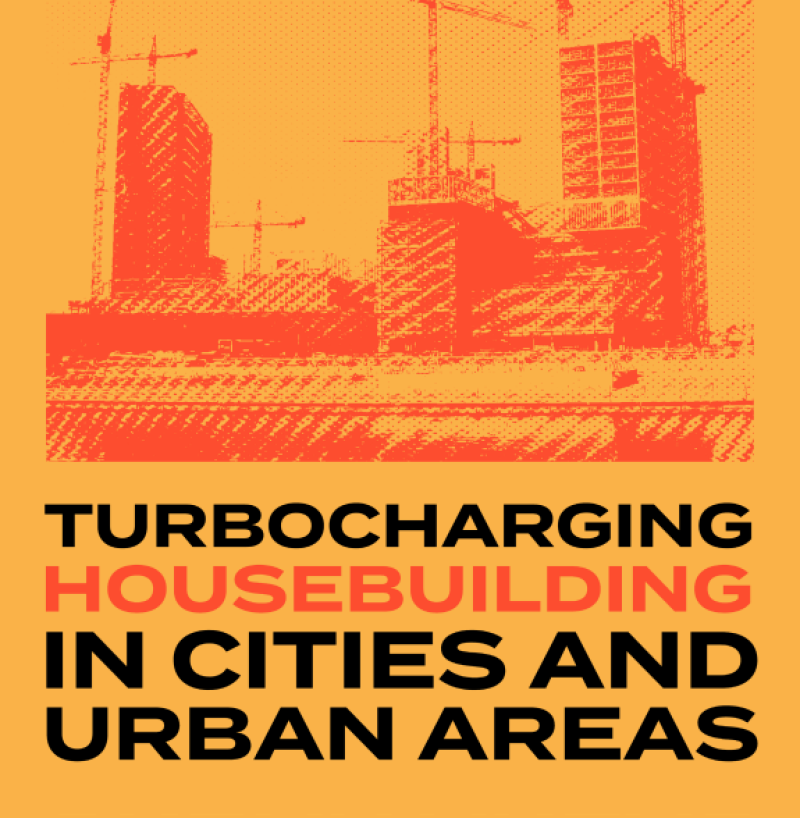The government’s ambition is to deliver 1.5 million new homes during this parliament. Following a survey of our 25 member cities and towns, we identified the structural barriers to housing delivery throughout the UK regions and provided recommendations, which include a series of targeted reforms that will unlock land, improve viability and raise housing standards.
Key findings of our report include:
- Nearly 90% of Key Cities say the shortage of affordable and social housing in their city is “critical” or “extremely critical”.
- More than 60% of Key Cities’ membership reports in excess of 1,000 homes in their area with planning permission but not yet built.
- Just 6% of local authority respondents cite the planning system as the main barrier to housing delivery, with 27% citing cost and finance.
A core part of our report’s final recommendations is the creation of a £3 billion Land and Infrastructure Viability Fund, consolidating unspent Community Infrastructure Levy receipts, existing brownfield grants, and new capital from the National Wealth Fund.
This approach would simplify funding streams and support remediation and infrastructure delivery on brownfield and grey belt land; brownfield alone accounts for 8.7% of England’s land area (more than six times that of the residential land). With costs being identified as the main barrier to housebuilding, unlocking this land could significantly increase supply and help address the viability constraints that currently stall development, particularly in areas with high remediation costs or limited infrastructure.
Our report also proposes replacing the current definition of affordable rent (80% of market rent) with a new benchmark: 130% of social rent to better reflect local incomes. This would reduce housing costs by just under 20%, a significant reduction in costs for renters across the country, and better tie affordability to local earnings and property values, ensuring that homes are more readily accessible to those in need.
To support Britain’s SME housebuilders, the threshold for housebuilding categories needs to be increased. Therefore, our report proposes raising the ‘medium site’ category from 49 to 99 homes to streamline approval processes for small to medium-sized housebuilders and overcome current barriers to development.
Taking heed of the findings and recommendations within our latest report, we look forward to working alongside the government to address the country’s housing crisis and deliver the good-quality and affordable homes so many desperately need.
Cllr Michael Mordey, Deputy Chair and Housing Portfolio Lead of Key Cities and Leader of Sunderland City Council, said: “There is a lot of work to be done to meet the national housing target and to address the existing housing crisis, particularly the supply of quality, affordable housing. In areas of greater deprivation, the need is stark. Without urgent delivery of social and affordable housing, the cost of temporary accommodation rises year on year and remains at the forefront of many Key Cities leaders’ minds.
“Whilst there has been a lot of focus on planning reform, councils across the UK have thousands of homes with planning permission that are stalled and not being built, exemplifying that the housing crisis is not just a question of supply, but of delivery.
“Drawing on experience and expertise from a wide range of cities and private sector housing delivery experts, this report’s recommendations point the way towards an improved model of housing delivery where the Government’s ambitions for housebuilding in cities and urban areas can be met, and housing is not only affordable and delivered at pace but at a better standard for communities across the country.”
Councillor John Merry CBE, Chair of Key Cities and Deputy City Mayor of Salford City Council, said: “This research marks a turning point. It establishes Key Cities as a leading partner in helping the government not just to hit its targets but realise its full impact. By exploring the challenges and the barriers faced by city authorities, we hope to present credible and replicable solutions that will benefit communities across the UK regions.”
Pam Cox MP, MP for Colchester, said: “If we’re serious about tackling the housing crisis, we must confront the real barriers to delivery – not just planning, but also cost, infrastructure, and land viability. In places like Colchester we need the government to match our ambition with targeted investment. The proposed Land and Infrastructure Viability Fund is a vital step forward, and I fully support efforts to make affordable housing genuinely affordable for the people who need it most.”
Naushabah Khan MP, MP for Gillingham and Rainham, said: “It is clear that we will struggle to hit the government’s target of 1.5 million new homes unless we combat the barriers stalling delivery.
“This report presents bold yet practical solutions. Redefining affordability so rents are tied to local earnings, not inflated market rates, will make homes genuinely within reach. A new co-investment model can unlock land, de-risk private capital and give councils real power to shape housing in their communities. And by removing restrictive regulations and raising specific industry standards, we can build faster while ensuring homes are fit for the future.
“The challenge is big, yet the opportunity is also great. With targeted reforms and genuine collaboration, we can turbocharge housebuilding and deliver homes people can truly afford.”
The report can be found here.



